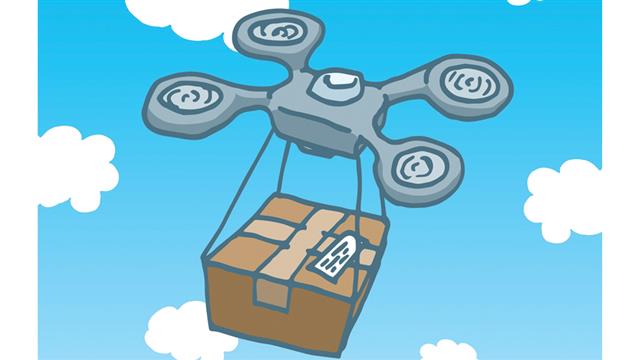On 20 January, a drone crashed into a supermarket parking lot in Tijuana, a Mexican border city, apparently en route to the US. The drone was found to be carrying more than six pounds of methamphetamine.
Drug traffickers are not the only ones starting to explore the potential of drones as this cheap robotic aircraft has become increasingly popular with hobbyists. Entrepreneurs of all stripes also see limitless uses of them.
Some accounts trace the ancestry of drones back to the use of hot air balloons laden with explosives in the middle of the 19th century. But the real origin of today's drones was the first recoverable and reusable radio-controlled aircraft dubbed the 'Queen Bee' developed by the Royal Navy for aerial target practice in the 1930s. Now drones have evolved from military to civilian uses. A report published on 5 March 2015 by the British House of Lords European Union Committee estimates that there will be as many as 150,000 drone-related jobs in Europe by 2050. The chairman of the committee, Baroness O'Cathain, said: 'The growth in civilian drone use has been astonishing and they are taking to the skies faster than anyone could have predicted.'
You may have seen footage captured by drones on TV and news programmes, movies, or even publicity videos produced by our University. DHL, UPS, and Alibaba's online marketplace Taobao have been testing using them to deliver packages. Commenting on its drone delivery service, Jeff Bezos, founder and CEO of Amazon, said, 'I know this looks like science fiction, but it's not.'
Drones can offer more. On the academic front, researchers use drones to track wildfires or ozone concentrations, oil spills and volcanic ash. And a significant number of them are deployed to the polar regions to study the melting of ice. Trowel-wielding archaeologists now add drones to their tool kits. In Peru, a fleet of drones is used to map and monitor its archaeological sites, safeguarding them from being encroached by development.
Drones are also a wildlife con-servation tool. The Sea Shepherd Conservation Society sends out drones to watch over pilot whales. If they get too close to the Faroe Islands, where locals have yearly hunts, the society sends out boats to chase them away.
American farmers use them to identify insect problems and watering issues, assess crop yields or track down cattle that have wandered off. While some farmers buy their own drones, most are expected to hire from companies because of the complexity of flying drones.
In response to this, dozens of universities in the US are offering or planning to offer drone programmes. The University of Alaska Fairbanks started a course on the flying technology of drones in 2014 in its engineering department. There is even a university specializing in drones. Founded in 2012, the Unmanned Vehicle University in Phoenix offers certificate, Masters and PhD programmes.
Perhaps some day in the future when you ask a student of our University what his major is, he'll reply: 'Drones.'


